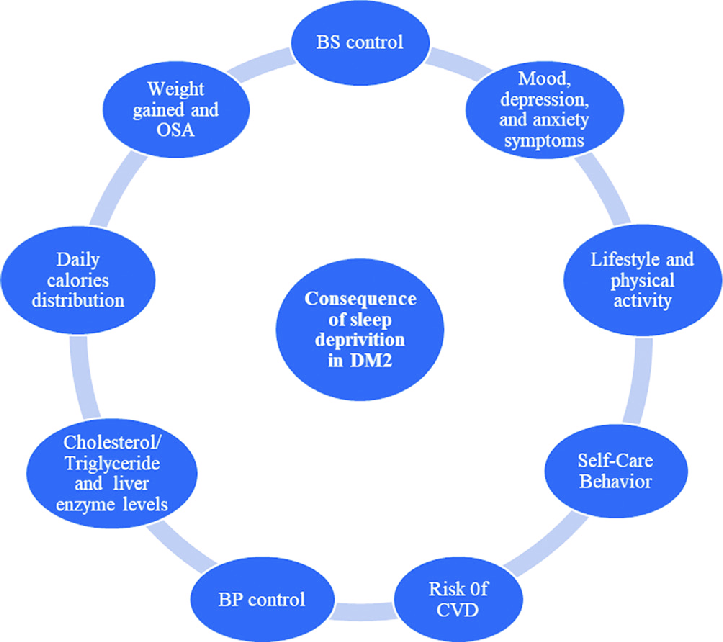In the relentless hustle of modern life, sleep often falls by the wayside. With packed schedules, looming deadlines, and endless distractions, it’s easy to prioritise productivity over rest. However, mounting evidence suggests that neglecting sleep may come with dire consequences, particularly concerning our metabolic health.
Recent studies have unveiled a sobering reality: not getting enough sleep can significantly increase the risk of developing Type 2 diabetes.
Type 2 diabetes, characterised by insulin resistance and high blood sugar levels, has reached epidemic proportions globally. While factors like genetics and diet play significant roles in its development, sleep patterns have emerged as a crucial yet often overlooked determinant. The relationship between sleep deprivation and Type 2 diabetes risk is multifaceted, rooted in intricate physiological processes that govern our metabolism.
One of the primary mechanisms linking sleep deprivation to diabetes risk revolves around insulin sensitivity. Adequate sleep is essential for maintaining optimal insulin sensitivity, the body’s ability to respond efficiently to insulin. However, when sleep is compromised, as in the case of chronic sleep deprivation or poor sleep quality, insulin sensitivity takes a hit. This means that cells become less responsive to insulin, leading to higher blood sugar levels and eventually increasing the risk of Type 2 diabetes.

Moreover, sleep deprivation disrupts the delicate balance of hormones that regulate appetite and energy expenditure. Ghrelin, the hormone responsible for stimulating hunger, tends to increase with sleep deprivation, while leptin, the hormone that signals satiety, decreases. This hormonal imbalance not only triggers cravings for high-calorie foods but also impairs the body’s ability to regulate food intake, often resulting in overeating and weight gain – two well-established risk factors for Type 2 diabetes.
Furthermore, insufficient sleep disrupts the body’s circadian rhythm, the internal clock that regulates various physiological processes, including glucose metabolism. Disruptions to the circadian rhythm can lead to dysregulated glucose metabolism, characterised by abnormal fluctuations in blood sugar levels throughout the day. Over time, these disturbances can contribute to the development of insulin resistance and Type 2 diabetes.
The impact of sleep deprivation on Type 2 diabetes risk extends beyond physiological mechanisms to encompass lifestyle factors as well. When individuals are sleep-deprived, they often experience fatigue and decreased motivation to engage in physical activity. As a result, exercise levels may decline, exacerbating the risk of weight gain and insulin resistance. Additionally, sleep-deprived individuals may rely on caffeine and sugary snacks to combat fatigue, further compounding metabolic dysfunction.
The detrimental effects of sleep deprivation on Type 2 diabetes risk are particularly concerning given the prevalence of inadequate sleep in modern society. The advent of technology, with its ubiquitous screens and round-the-clock connectivity, has encroached upon our natural sleep-wake cycles. Many individuals struggle with sleep disorders such as insomnia and sleep apnoea, further compromising their ability to obtain restorative sleep.
What you can do to make sure your sleep duration and quality is good
Addressing the link between sleep deprivation and Type 2 diabetes risk requires a multifaceted approach that encompasses both individual behaviour change and broader societal initiatives. On an individual level, prioritising sleep hygiene – adopting habits that promote quality sleep – is paramount.
This includes maintaining a consistent sleep schedule, creating a relaxing bedtime routine, and optimising the sleep environment for comfort and darkness.
Moreover, raising awareness about the importance of sleep for metabolic health is crucial.
Education campaigns aimed at dispelling the myth that sleep is expendable in pursuit of productivity can help shift societal attitudes towards sleep.
Employers can play a role by promoting workplace policies that prioritise employee well-being, including flexible work hours and designated nap spaces.
From the health care point of view
From a public health perspective, integrating sleep health into healthcare systems is imperative. Healthcare providers should routinely screen patients for sleep disorders and provide education on the link between sleep and metabolic health. Additionally, research efforts should focus on elucidating the underlying mechanisms linking sleep deprivation to Type 2 diabetes, paving the way for targeted interventions and treatments.
In conclusion, the evidence linking sleep deprivation to an increased risk of Type 2 diabetes is compelling. As we navigate the complexities of modern life, it’s essential to recognise sleep as a cornerstone of metabolic health. By prioritising sleep and implementing strategies to improve sleep quality, we can mitigate the risk of Type 2 diabetes and promote overall well-being.








